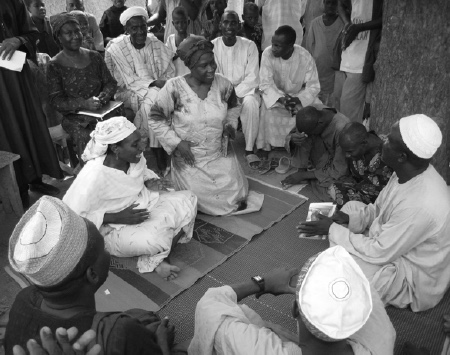Funders
U.S. President’s Malaria Initiative (PMI) / John Hopkins Center for Communication Programs
Location
Ghana, Kenya, Malawi, Mali, Nigeria, Rwanda, Uganda
Dates
2013-2014

The goal of the PMI NetWorks Project was to build sustainable long-lasting insecticide-treated net (ITN) systems to prevent malaria. Working in 13 countries, the five-year $30 million PMI NetWorks project helped bridge key technical areas of advocacy, policy, distribution, monitoring and communications to increase net access and use in malaria-endemic countries. Led by the Johns Hopkins Center for Communication Programs, Tropical Health provided leadership on monitoring and evaluation of ITN access, use, durability, and continuous distribution systems.
Tropical Health led the concept development of continuous distribution through community channels and schools, evaluating pilots in five countries and through two operations research studies. Tropical Health’s NetCALC model was used in 18 PMI focus countries to plan ITN distribution strategies, and eight countries used the findings to inform their Global Fund applications. Tropical Health also led analysis to change WHO policy for procurement for mass campaigns, leading to improved access to ITNs for 160 million additional people worldwide. Our team also published seminal articles on ITN use, cost-effectiveness of ITN hang-up campaigns, promoted improved universal coverage indicators, and conducted studies on ITN durability.
Tropical Health’s findings from the continuous distribution evaluations informed the scale-up of Tanzania’s school net programme to 14 regions, Ghana’s school net programme nationwide, and led to changes in WHO policy for universal coverage encouraging countries to explore feasible continuous options to maintain high ITN access. Our work on ITN durability led to an additional evidence base to support countries to fine-tune their ITN replacement strategies. Findings from the research on effectiveness of ITN hang-up campaigns led to policy changes at USAID and Global Fund that saved money, allowing programmes to invest in other malaria control activities.
Global Fund / Nigeria National Malaria Elimination Programme
Nigeria
2023 - 2024
Belgian Cooperation/ Light for the World
Democratic Republic of Congo, Rwanda, Tanzania
2021-2022
UK Aid and People’s Postcode Lottery / Sightsavers
Malawi, Uganda
2023 - 2024
Global Fund / Nigeria National Malaria Elimination Programme
Nigeria
2023 - 2024
Sightsavers, Ghana Somubi Dwumadie (FCDO)
Ghana
2022-2023
Global Fund MOSASWA (Mozambique, South Africa and Swaziland) region
Mozambique
2022-2023